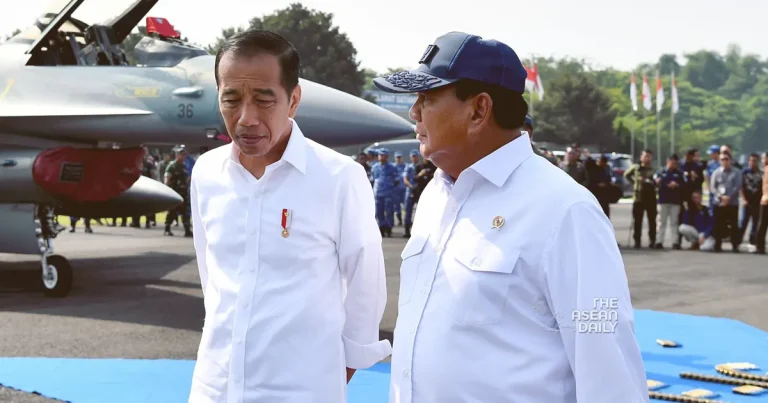20-3-2024 (JAKARTA) The recent Indonesian presidential election was billed as a contest between continuity and change, with Prabowo Subianto selling himself as the former and his rivals representing the latter. In the end, continuity prevailed – but at what cost to Indonesia’s democratic norms and institutions?
Mr. Prabowo’s resounding first-round victory with 58% of the vote was an unprecedented landslide that allowed him to dispense with the typical runoff. However, the circumstances surrounding his triumph have cast a pall over the exercise, reinforcing concerns about the condition of Indonesia’s democracy under President Joko Widodo’s tenure.
Even before a single vote was cast, the path was cleared for Mr. Prabowo in ways that strained institutional integrity. The controversial court ruling permitting the president’s son, Gibran Rakabuming Raka, to run as Mr. Prabowo’s vice-presidential candidate raised eyebrows about judicial independence. Then came widespread reports of overt government interference skewing the playing field in the ruling pair’s favour.
Stories have emerged of police leveraging the threat of corruption probes to strong-arm local officials into campaigning for the Prabowo-Gibran ticket. State resources and personnel were seemingly mobilised in an unprecedented way to boost the incumbent-endorsed team’s prospects. As analysts Sana Jaffrey and Eve Warburton observed, “It’s difficult to say with certainty whether or to what extent these sorts of tactics had a significant impact on the final result.” But the apparent breadth of such efforts certainly casts a shadow.
For critics, this represents a new nadir in the deterioration of Indonesia’s democratic standards during Mr. Widodo’s nine years in power. His tenure has already witnessed a concerning slide in civil liberties and institutional checks and balances. If blatant abuse of incumbency powers to tilt the electoral playing field is now the norm, it would mark a line crossed – calling into question whether Indonesia still merits the “democracy” label.
Some opposition figures are unsurprisingly pushing for a parliamentary inquiry to probe the conduct of the 2024 polls. Even a highly partisan process would likely expose further unsavoury details that could galvanise reform efforts ahead of November’s local elections. Mr. Widodo, desperate to avoid any taint on his family’s political dynasty, is feverishly working to dissuade such a probe.
The Indonesian Democratic Party of Struggle (PDI-P), having emerged as parliament’s largest party despite their candidate’s drubbing, has found itself under particular pressure. Party leader Ganjar Pranowo’s call for an investigation promptly saw him hit with a dubious corruption complaint, while coalition partners hint at stripping PDI-P of its claim to the legislature’s speakership.
Ultimately, few are challenging the genuine nature of Mr. Prabowo’s victory as reflecting voters’ desire for constancy after the Widodo years. In the campaign’s aftermath, his Gerindra party has gone to pains to emphasise continuity, declaring a transition team unnecessary given how seamlessly current policies will be maintained.
Mr. Prabowo’s biggest specific pitch – a programme for free school lunches nationwide – is being worked over by Widodo’s team to fit within fiscal realities. One analysis suggested fully delivering on the campaign trail promise could cost up to 1.9% of GDP annually, giving investors pause given Mr. Prabowo’s past penchant for grandiose, state-driven economic visions.
Perhaps sensitised to such concerns, the president-elect has reaffirmed his fidelity to the proverbial “Jokowinomics” platform at a recent investor conference in Jakarta. He pledged to uphold the statutory 3% debt ceiling and press on with streamlining the sprawling state enterprise sector while preserving those firms’ roles in strategic industries.
Yet even as brand “continuity” endures, so do long-standing worries about where Mr. Prabowo might ultimately steer the world’s third-largest democracy and Muslim-majority nation. The same Jakarta audience heard him remark nonchalantly that “democracy is really very, very tiring…very, very messy (and) very, very costly” – with the addendum that “there is a lot of room for improvement”.
For those familiar with Mr. Prabowo’s anti-democratic past as a former general under the Suharto dictatorship, such quips don’t inspire confidence in his commitment to pluralistic governance. As the incoming custodian of Indonesia’s democratic inheritance, his willingness to robustly safeguard and strengthen its republican institutions will be closely scrutinised.
For the political class across the ideological spectrum, addressing the tarnish left on the electoral process is a priority – not just to uphold democratic principles, but out of sheer self-interest. Unchecked erosion of free and fair balloting opens the door to a future where power is simply seized rather than contested. An inquiry into the 2024 polls, for all its flaws, would be a start in committing to higher democratic standards going forward.
Indonesia’s rise as a Muslim democracy and emerging economic force has been a powerful rebuttal to obsolete “clash of civilisations” bromides. But that legacy will be jeopardised if its hard-won democratic freedoms and resilient institutions aren’t continuously reinforced against the slide of the past few years. As Mr. Prabowo assumes the stewardship of the world’s third-largest democracy, addressing the shadows overhanging his own election is a critical first step.




